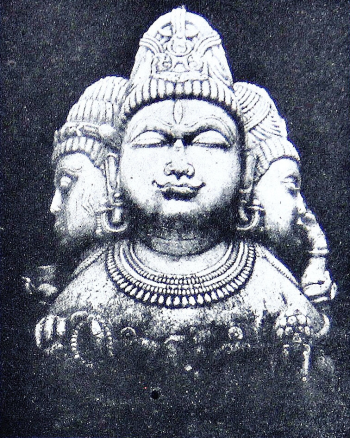- Jun 22, 2015
- 8,243
- 1,202
- 113
- Faith
- Christian
- Country
- Australia
Trinitarianism asserts that Jesus was both fully God and fully man, commonly referred to as the "God-man." However, this teaching inherently requires Jesus to be both "God" and "not-God" simultaneously, unless one equates "man" with "God." Attempting to address this issue by appealing to the hypostatic union—understood as the union of two natures in the person of Jesus—merely restates the problem without providing a solution. Moreover, it introduces an unbiblical concept in place of clear biblical evidence.
It’s important to note that I do not claim that by becoming both God and man, Jesus would become two separate beings or persons. However, it’s undeniable that, according to this view, he would possess two mutually exclusive natures, each with its distinct attributes. This position is neither biblically sound nor logically coherent.
As a result, the hypostatic union turns into the "hypostatic dilemma," a challenge that even Trinitarian scholars acknowledge by recognizing the various issues that arise from it. For instance, questions emerge such as:
- Why did Jesus seem to lack omniscience?
- Was he capable of sin? (Trinitarians are divided!)
- Did he perform miracles through the power of the Holy Spirit or through his inherent divine power?
Furthermore, was Mary legitimately referred to as "Theotokos" (God-bearer) because she bore the Son of God? While the Eastern Church affirmed this title, the Western Church rejected it as heretical, a disagreement that played a role in the Great Schism of AD 1054, which formally divided the Catholic and Orthodox churches.
It has become increasingly evident from the ongoing debates here that these and similar issues have troubled Trinitarianism for centuries and continue to remain unresolved.
(Personal note: I would prefer to include Bible verses and offer a thoughtful, contextual analysis of the Word; however, I believe this is the first OP without any Scripture references.)
It’s important to note that I do not claim that by becoming both God and man, Jesus would become two separate beings or persons. However, it’s undeniable that, according to this view, he would possess two mutually exclusive natures, each with its distinct attributes. This position is neither biblically sound nor logically coherent.
As a result, the hypostatic union turns into the "hypostatic dilemma," a challenge that even Trinitarian scholars acknowledge by recognizing the various issues that arise from it. For instance, questions emerge such as:
- Why did Jesus seem to lack omniscience?
- Was he capable of sin? (Trinitarians are divided!)
- Did he perform miracles through the power of the Holy Spirit or through his inherent divine power?
Furthermore, was Mary legitimately referred to as "Theotokos" (God-bearer) because she bore the Son of God? While the Eastern Church affirmed this title, the Western Church rejected it as heretical, a disagreement that played a role in the Great Schism of AD 1054, which formally divided the Catholic and Orthodox churches.
It has become increasingly evident from the ongoing debates here that these and similar issues have troubled Trinitarianism for centuries and continue to remain unresolved.
(Personal note: I would prefer to include Bible verses and offer a thoughtful, contextual analysis of the Word; however, I believe this is the first OP without any Scripture references.)








